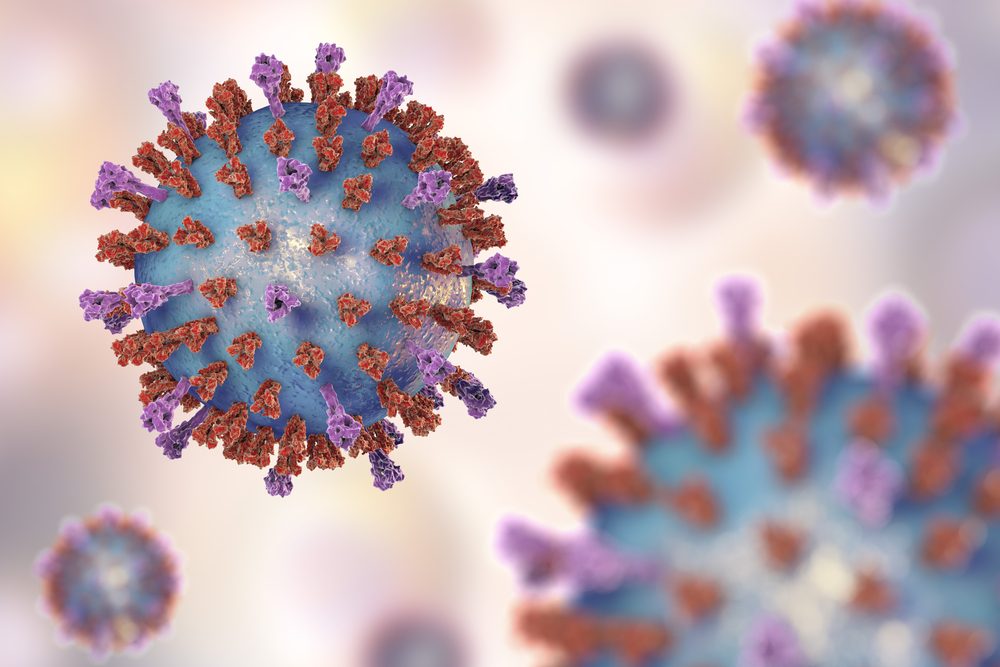Immunosuppressants May Be Beneficial to Treat MG Patients With COVID-19

In two of three myasthenia gravis (MG) patients who contracted COVID-19, the use of immunosuppressants did not cause an exacerbation or myasthenic crisis, a case study reports, suggesting the treatments may be safe and beneficial for this group of patients.
“Despite these results, MG patients should practice vigilance and take extra precautions to reduce the risk of contracting COVID-19,” the research team advised.
The study, “Case series: COVID-19 in patients with mild to moderate myasthenia gravis in a National Referral Hospital in Indonesia,” was published in the journal eNeurologicalSci.
As with other autoimmune disorders, patients with MG are at increased risk of contracting severe COVID-19, particularly those on long-term immunosuppressive therapies. This is because the therapies work by shutting down the body’s immune system, which is needed to fight against harmful microbes like bacteria and viruses.
Two potential treatments for COVID-19, the antibiotic azithromycin and the anti-malarial agent hydroxychloroquine, also can cause complications and even lead to a myasthenic crisis in MG patients.
Still, the COVID-19 disease course in patients with MG varies widely, just as it does in the general population.
In this report, researchers described the cases of three MG patients who were treated for COVID-19 at a national referral hospital in Indonesia from July to October 2020 and had a favorable outcome.
The first patient was a 25-year-old woman who was being treated for MG with a daily dose of 180 mg of pyridostigmine (sold as Mestinon, among other brand names).
Eight days after developing flu-like symptoms, she was admitted to the hospital with a fever, dry cough, and lost sense of smell, along with several MG symptoms, including ptosis (drooping upper eyelids), difficulty chewing and swallowing, and muscle weakness.
COVID-19 infection was confirmed with a nasal swab test. The patient was treated with vitamin C (500 mg per day), the mucolytic and antioxidant agent N-acetylcysteine (600 mg per day), and the antibiotic ceftriaxone (2 g per day) for six days.
She also received the antibiotic azithromycin at a daily dose of 500 mg, which was promptly discontinued after one day due to the potential risk of an MG exacerbation. She continued treatment with pyridostigmine at a daily dose of 240 mg, and her MG symptoms resolved within five days.
She was discharged two weeks after being admitted to the hospital, and remained in quarantine at home for the following two weeks.
The second patient was a 49-year-old man who also was being treated for MG with a daily dose of 180 mg of pyridostigmine and 100 mg of the immunosuppressant agent azathioprine (sold as Azasan, among other brand names).
In the week prior to hospital admission, he experienced a fever and dry cough with no MG symptoms. A chest X-ray found signs of lung infection, while a blood test showed he had very high levels of CRP (35.7 mg/L, normal: less than 10 mg/L) and D-dimer (537 nanograms per milliliter (ng/mL); normal: less than 250 ng/mL), suggesting the presence of inflammation and abnormal blood clotting.
COVID-19 infection was confirmed and the patient was treated with a daily dose of 500 mg of azithromycin for five days, 3,000 mg of vitamin C, and 1,500 mg of paracetamol (a fever reliever). He experienced no complications or MG symptoms and was discharged two weeks after being admitted to the hospital.
The third patient was a 42-year-old woman who was being treated with a daily dose of 240 mg of pyridostigmine, 4 mg of the steroid methylprednisolone, and 720 mg of the immunosuppressive agent mycophenolate mofetil (sold as CellCept) to control her MG.
She experienced flu-like symptoms in the week before her admission, as well as ptosis. A chest X-ray and blood test found signs of lung infection and elevated CRP levels (167 mg/L), which was indicative of inflammation.
After confirmation of COVID-19 infection, she was treated with a daily dose of 200 mg of hydroxychloroquine and 600 mg of N-acetylcysteine for seven days. Methylprednisolone was increased to 16 mg per day, while pyridostigmine and mycophenolate mofetil continued being administered at a regular dose. She was discharged after two weeks.
“Azithromycin and hydroxychloroquine have been considered to contribute to MG exacerbation. Cases 2 and 3 did not show any deterioration of MG symptoms during hospitalization despite administration of azithromycin and hydroxychloroquine. Thus, azithromycin and hydroxychloroquine may not be harmful in MG patients … but still require caution,” the researchers concluded.





